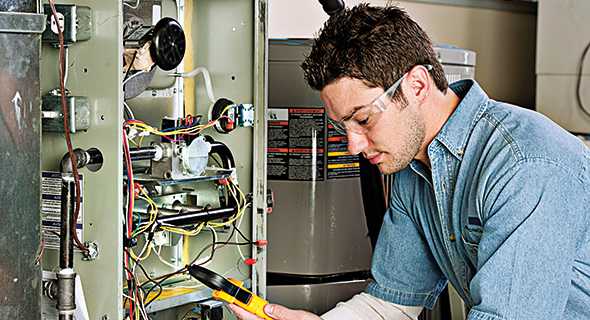Scouting service technicians
A continuous need exists for finding, hiring and retaining well-qualified propane technicians, and doing so does not come easily.
This has become a hot topic surrounding the propane industry and will continue to be a vital piece to growing any company. While there’s no rulebook on the perfect hire, there are many questions about the methods for finding the correct technician.
Do we hire someone with experience? Do we hire someone with no experience and then train him in-house? Do we hire someone right out of high school, trade school or college?
There are many pros and cons to weigh when deciding on the best hiring solution for your company, and it’s important to be proactive and evaluate them based on your company’s ultimate goals.
I have been on both sides of the propane fence, working as a technician for many years, a service manager and most recently an operations manager. I can relate to a variety of roles within the industry. While there is always great energy put forth to promote and hire from within the industry, I find a lot of value in hiring fresh, outside people to train in-house.
This is certainly not a new practice. Other trades such as electricians and plumbers have been using this method for years. However, it does require planning to make sure your assets are utilized.
From my experience, this initial investment usually takes around two years before the technician can be fully licensed and have enough practice to take on your customers’ needs. While investing the resources now might seem significant, the payoff in the long run is much greater.
Finding the right people to train can seem overwhelming and time-consuming, but it’s important to know you are not locked into people from just one skillset. New recruits can come from a variety of backgrounds and experiences, ranging in age and expertise. The goal is to educate, mold and sculpt new trainees into skilled technicians who truly value their position within the company and respect the trade. Also, recruiting people from outside the industry will remove any preconceived stigmas or habits people within the industry might have formed.
The task of finding new trainees should start locally. Try to attend local events, such as job fairs and trade school graduations, and connect with trade school teachers and local businesses. Friends and family can also prove to be helpful. Having that personal reference is a huge advantage when hiring, as you already have a good idea of the worker’s strengths and weaknesses.
When establishing the best employment strategy for your company, make a list of what traits are found in a great technician. Oftentimes your best technician may not be the one who fixes everything the first time. He may not be the one who works the fastest or the most hours. He may not be your best troubleshooter. Your best technician is typically well rounded, with a true understanding of the bigger picture. He cares about the company and your customers. He cares about his job.
A distinguished technician may not always be the fastest or fix the problems immediately, but he has a great attitude and a true desire to resolve the issue in order to satisfy the customer. Technicians who have great temperament and a high aptitude to learn are frequently the best technicians.
A company’s improvements may not happen overnight but are vital to grow and maintain skilled technicians, who will serve as great trainers for future recruits. Retaining these technicians after the training investment becomes crucially important. This can be done with competitive pay, good benefits, continued education and supplying the technician with a positive working environment.
Companies that are afraid to invest in training because they think technicians might leave later are doing a disservice to their potential growth. We need to make this industry attractive for younger and upcoming generations. Seasoned technicians are among our greatest assets, and we need to utilize their skillsets to build and develop new technicians.
Ryan Card is the operations manager at D.F. Richard Energy in Dover, New Hampshire. He can be reached at rcard@dfrichard.com or 603-516-3225.

















